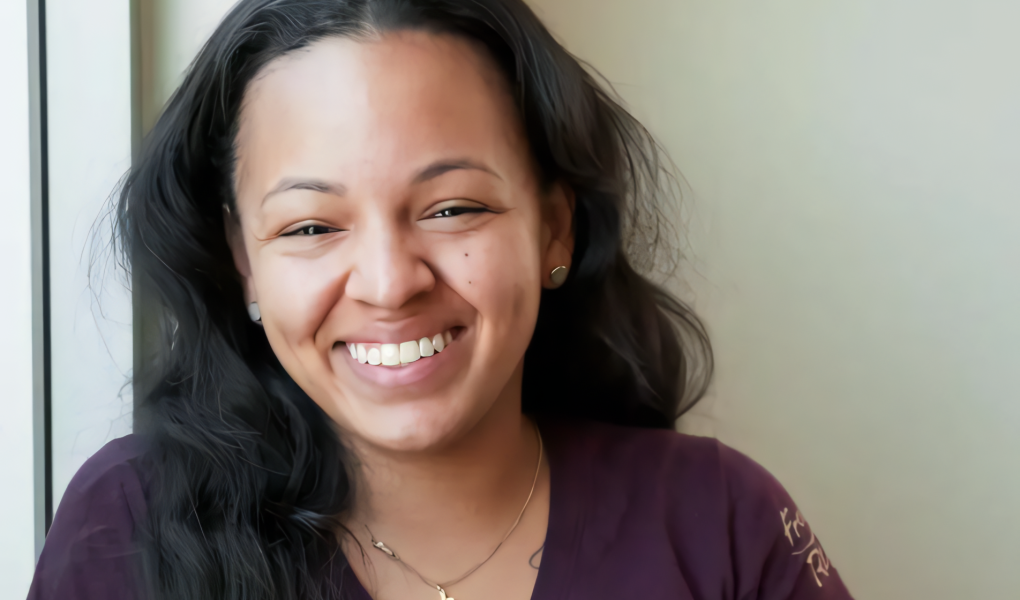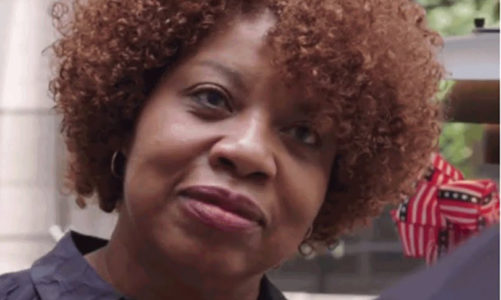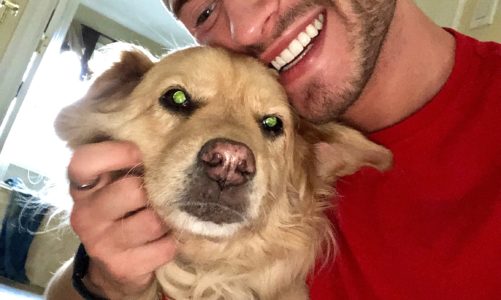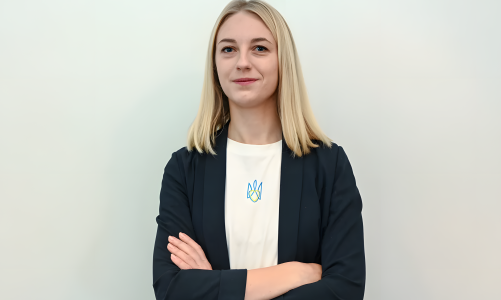*Content Warning – This article contains discussion of sexual assault, child abuse, suicide, and violence.
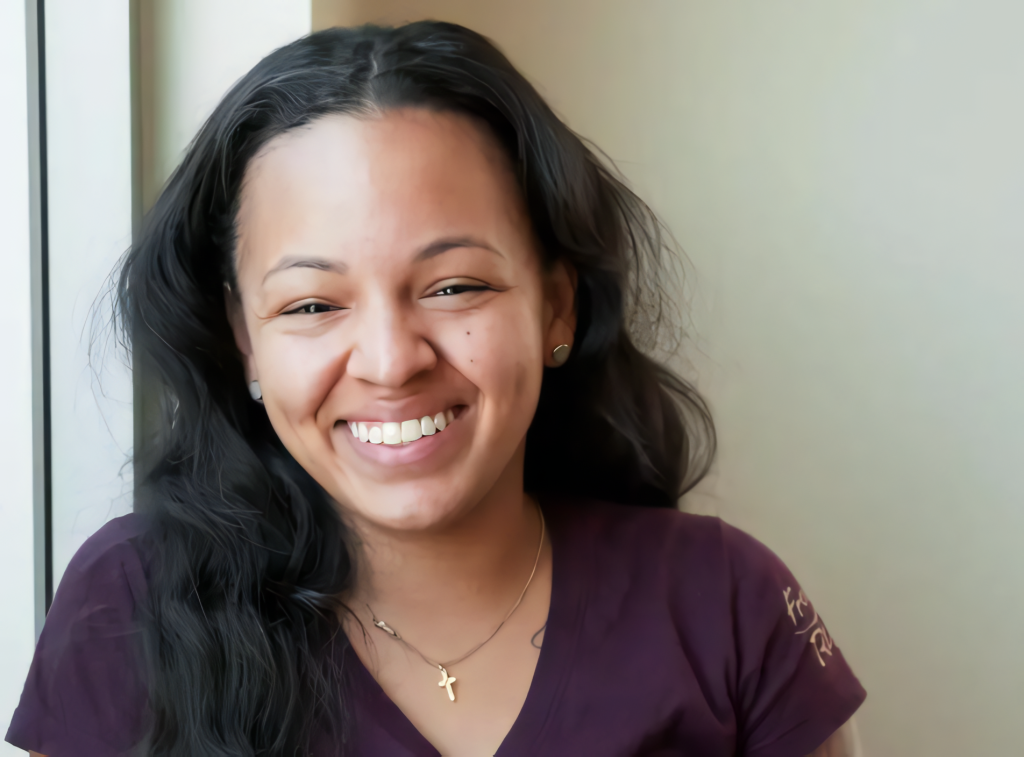
Oree Freeman is an activist, advocate, and survivor of child sex trafficking. She was born to a mother in prison, adopted at four-years-old, and abducted into trafficking at eleven-years-old. Due in-part to the stigma surrounding child sex trafficking, she was surrendered to the foster care system upon her return home.
Freeman has dedicated her professional life to counseling exploited, homeless, and foster youth through not-for-profit organizations such as Saving Innocence and her own ventures. Her work has been featured in People Magazine, The Los Angeles Times, and ABC News, among others. In 2017 she was invited to give a TEDx talk, “The Invisible Traffic After The Streetlights Go Out.” Freeman graduated with an associate’s degree from Orange Coast College in 2022 and was selected to deliver the commencement speech. In addition to her ongoing service work, she is currently earning a bachelor’s degree in philanthropy at The University of Texas at Arlington.
*This interview was conducted jointly by Haley Joyce ’23.5 and Amelia Spalter ’21 MA ’22. Amelia and Haley are directors emerita of the Brown Political Review Interviews Board. Amelia is the founder and former editor in chief of Brown Interviews. Haley is a Brown Interviews contributor and president of the Black Pre-Law Association (BPLA).
Amelia Spalter: Your personal and professional journey is profoundly complex. How do you define your life story up to this point?
Oree Freeman: Honestly, the sex trafficking was just the surface-level stuff. It is the [trauma I experienced before], that made me vulnerable to being exploited. And this is very raw, but it was bound to happen in the environment that I was in, because it was a normal thing where I come from. I would say the hardest part of my life and my story wasn’t just the sex trafficking part. It was the abandonment. It was the rejection. It was not knowing who I was and where I came from and not being comfortable in my own skin.
It was also the colorism that I faced, even from other Black women, while going to schools that weren’t predominantly African American. It was being called the N-word and not fitting in. I don’t really talk much about how badly I was bullied but I was bullied really badly in elementary school. It was by other Black girls, and that started a lot of my identity issues. I had my hair cut off, I had my head stuffed into the toilet, and more. These events made me very self-conscious and being self-conscious made me insecure. Eventually I felt like I wasn’t worth nothing. I felt unseen. I felt unheard.
But I think I have grown past my narrative being about an eleven-year-old girl who was sex-trafficked and all these things. Let’s talk about all those little girls and little boys who end up being sexually exploited because they weren’t seen. It might be brought to light about them being molested or trafficked and that will hopefully be addressed, but it’s all that underlying [childhood trauma] that really needs to be helped. Let’s put our efforts towards prevention instead of [continuously trying to tackle a symptom of the problem], the rates of which only continue to rise. [Sexual exploitation of minors] is happening and we are in a culture that constantly tells us it is okay. You hear it in music, you see it on television, it is casually in the mainstream.
And the legalization of prostitution is becoming increasingly likely. No offense intended whatsoever to the notion of, “It’s my body, it’s my choice,” because if you’re an adult, that’s fine. But you have to consider that many people are under eighteen when they start [prostituting.] The majority, 90%, of [sex workers] are around twelve or thirteen when they start. Today, people look at that twelve- or thirteen-year-old and are saying, “Well, it’s her body. We have to offer trauma-informed care and respect that these are the decisions she wants to make.” But we do not talk about the kind of adult that child will become.
AS: What do audiences typically find most surprising about your story?
[On the surface] I had an okay family. I always make a point to tell people that, because most people think the things that happened to me cannot happen to their kids. In fact, I was a very sheltered kid. Even though I lived in the ghetto, I have two sides of my family. A lot of people do. I had the side where a lot of people were probably addicts and some had been to prison, but I also had a side who were elite and who might have been educated and had 401ks and things like that.
The problem was that nobody was watching me. My parents wasn’t watching me, my extended family wasn’t watching me, nobody was watching me. Even a lot of times in rooms where I was being abused, my family was not watching me, nobody was watching, [despite having seemingly secure family members.] So, when you finally come across someone telling you that they love you and they care about you and they’ll watch out for you — it could be a trafficker or a domestic violence relationship, I’ve experienced both — being seen, being heard, being told “I love you,” and “You’re beautiful,” and all those things, can then be used by people with ill intent to manipulate you.
AS: What has been the most difficult period in your life so far?
Of everything that I have experienced in my life, the hardest thing was not being rescued. (…) I was in trafficking from ages eleven to fifteen and I started learning right away. I learned how to protect myself, how to cover myself, which ways he would beat me, the things that could possibly go wrong with people who purchased sex, I learned all those things, because they were survival skills. But at no point did I learn how to be a healthy adult. That is something that I’m currently living through. And that’s the hard stuff. How do you break the habits that you’ve been taught since you were a kid? After a lifetime of being rejected, how do you embrace yourself?
So, even after boys and girls, men and women, get rescued out of the life [of being trafficked], they still live unhealthy lives. But like I said, I did not end up here because I was trafficked. I ended up here because the people responsible for me were not watching me, did not face the truth about what was going on in the community, and ultimately set these events in motion. Even to this day, people do not talk about the truth of what is happening in their communities. I had a law-enforcement officer tell me one time — and I know there have been a lot of movements that are anti-law enforcement — but he said, “People think we are trying to protect the community from these kids. We are really trying to protect the kids from their own community, because that’s what damages them.” And he was right.
AS: In your TEDx talk you say how it is likely all it would have taken to remove you from trafficking was, “A mother, a coach, or a doctor,” to have asked if you were okay. I had assumed you did not come into contact with mothers, coaches, and doctors during that period of your life and was floored so many missed it. What signs, specifically, should people be looking for?
The number one thing for the community, especially for parents, is knowing who their children are hanging out with. I’ve realized this from my own experience, as well as from experience with my sisters and nieces. For example, I was a huge athlete. Even though I played sports, I played sports in the unhealthiest community. Half of the team was gang affiliated. All of them were having sex. I was ten years old, the oldest on the team was fourteen. So [these seemingly wholesome extra-curricular activities] were actually just exposing me to more unacceptable stuff. So take steps to know who your children are hanging around, know what activities they are participating in, and then know everyone in that group or on that team.
Ideally parents will assume this responsibility, but in reality, not all of them will. So, if you’re a teacher or a coach, if you’re working in a community, or anything like that, just know the signs. I don’t have to tell you, you know when you’ve got that gut feeling that something is wrong. Whether it is a child dressing very provocatively or their language is suddenly becoming too adult— There are certain things I hear from kids nowadays that make me stop and go, “Ok, something has to have happened to him or her, for that child to be talking like that.” Kids are not born with their guard up. That defensiveness comes from something that has happened to them. So, it is identifying the root cause of those things.
Haley Joyce: You’ve had a lot of exposure to neglect and abandonment. How did you find the strength to become your own rescuer, then the compassion to rescue so many others?
It took people in my life, that were not in my family, but were present since I was very young. People who loved me when I didn’t know how to love myself and, taught me how to be a healthy adult, even when I really wasn’t ready to receive it. I could not have become the woman who I am today without a community of people. I’m strong now, but it required the unconditional love and strength of people around me.
I didn’t understand how these individuals could love me when I was ready to cuss them out or throw a plate at their head, but they knew that it was never really about them. The person I was attacking was not them, it was really the person I was angry at; when I attacked them I was really attacking my mother. I wanted to curse out my mama, I really wanted to tell her and my other family members how I felt. My anger was never directed at probation officers, or social workers, or my counselors. It had nothing to do with them. But it took that community to get me to where I am today. It took a community for me to finally take control of my life. As long as I was in consistent survival mode, I could not thrive.
It took community for me, but it also took my faith. God has transformed my life completely, through prayer, through His word. That is my foundation. I grew up in a church. I grew up with [religion], but God was very far. I knew of Him, but I did not know Him. I didn’t understand what that unconditional love looked like.
I wouldn’t be who I am without my family, the people that love me. Again, I’m not talking about biological family and I’m not talking about my adopted family. I’m talking about my family that God has brought in my life. That’s the only way that you can save these kids. I’ve had eight kids on my caseload who have died, who have been murdered, unrelated to trafficking. It was just because they didn’t have anybody. I have been blessed, honestly, that I have a family picture full of probably twenty-five people who are not biologically mine or formally adopted, who I could pick up and phone if I feel suicidal. I can always call somebody. I wouldn’t be where I am without them.
Doing direct service has also motivated my work. I have an opportunity coming up in October where I’m going to be in Los Angeles county working with foster youth and homeless youth. I can’t save all of them, but if I could just save– Not even save, because that is not my job. If I can just help them get through their chaotic journey right now, that is all that matters.
HJ: How do you typically go about helping these youth on their journeys?
Getting them to use the tools that they already have and apply them in healthy ways. Such as how to regulate their emotions, understand that they have a purpose, and all those different things. So that as they are going through their journey, which is going to be hard, they can [minimize additional trauma.] For example, you might end up in an unhealthy relationship, but you now have the tools to get out of the relationship a lot faster than I did, before [things get serious,] before you have a child with that person. [So I’m just always asking,] “How do I teach them to prevent those situations?” They ain’t got to be perfect adults, but let me help you get to a space where you can have a little bit more control.
AS: How can everyday people prevent the sexual exploitation of children? In particular, how can parents protect their children as best as possible?
For parents, I would say pouring yourself into your child, talking to them. You could be physically present and provide all these things for your child and still not be mentally present, present with your heart. And my daughter is only three, so that’s something that I’m still learning to do, just pouring into her. From the other side, I had to learn about not exposing children to too much. Our generation is exposing children to a lot that their brains cannot handle yet.
That being said, we do need to talk to them about the realities of the world and be clear that bad things do happen. I think sometimes as parents we do not want to prepare our children for the tough rough courses of life, [because we do not want to think they will ever face those things], but there is not one person who has ever led a perfect life, right? It could be something as extreme as [sexual exploitation] or as common as their first heartbreak in a relationship. Regardless, you want to prepare them with the necessary tools to navigate their emotions, [so they are not vulnerable to unhealthy coping mechanisms or being exploited by predators.]
This goes beyond parents and should extend into the community. We need to start uplifting our kids, particularly young boys. I am becoming especially passionate about advocating for young boys, not only those who get trafficked, but those who traffic, those who become the exploiters. You know why? Because they were once the victims of something.
We always focus on the girls, but never the boys, and how they have been impacted by their trauma. We overlook our boys, maybe because of cultural concerns around masculinity, but somewhere they are getting lost. Then they become unhealthy fathers who start the cycle over again, so we need intervention for them to come at a young age. A lot of times we think, “It’s not my problem because it has nothing to do with my kid.” But you know what, it is a public health issue, it really is. So, the public must come together and create resources for intervention.
AS: What needs to occur for that intervention to be put in place?
I think it is a cultural issue. I will never forget when a Black police officer asked me, “When you were out there in the streets, how many Black women or men, people in your life, tried to help you?” And I’m like, “Not one. The first person to ever step in on my behalf was Caucasian.” So, I think it is a cultural thing. That we do not see these kids as victims and recognize that it is not their fault. I am not asking people to open up their homes or write a million dollar check. Just acknowledge that these kids are not at fault.
And, of course, advocate in any other way you can. You do not have to go outside of your lane in order to help. You don’t have to be an educator or a nurse. Let’s say you’re a mechanic. These kids could sure use an apprentice program or career day. There are so many ways to give back. The more we give what we have and stop reaching for resources we might not have, the sooner we start working with the tools already in our hands, the more we can help.
AS: What is the biggest misconception about child sex-trafficking that you would like to see dispelled?
If I went into my community right now, the most urban, low-income areas, and I asked, “What is human trafficking?” Do you know what they would say? “Oh, girls that get sent in from Thailand, Mexico, Africa, that’s trafficking. That’s the stuff from Taken. That’s what you see in movies.” If I said, “What about the girls that work the street here in LA like Figueroa or in the Valley?” I’d get, “Oh, those are prostitutes. Those are hoes.”
There is no commonality between the two to our community. They look at international children and say, “Those victims are being trafficked. They’re being human trafficked.” But if you ask about children from our community, “Oh. Those are prostitutes.” That is what we have to change. It all comes back to the community at the end of the day. Because I have been a part of many projects that work towards this goal, and it is not the professionals who we [struggle with], it is the family, friends, and neighbors of [potential future victims] and survivors.
Law enforcement is already picking up on it. Government agencies are already picking up on it. It is the churches, the nonprofits, the resource centers, the food banks, the schools, that need to change their narrative. When they change, the community’s attitude will shift along with them. It is [sexually exploited children’s] neighbors, friends, and schools that think these kids are prostitutes, not the criminal justice system. The institutions are not the groups judging them now. It is the people who they go back home to.
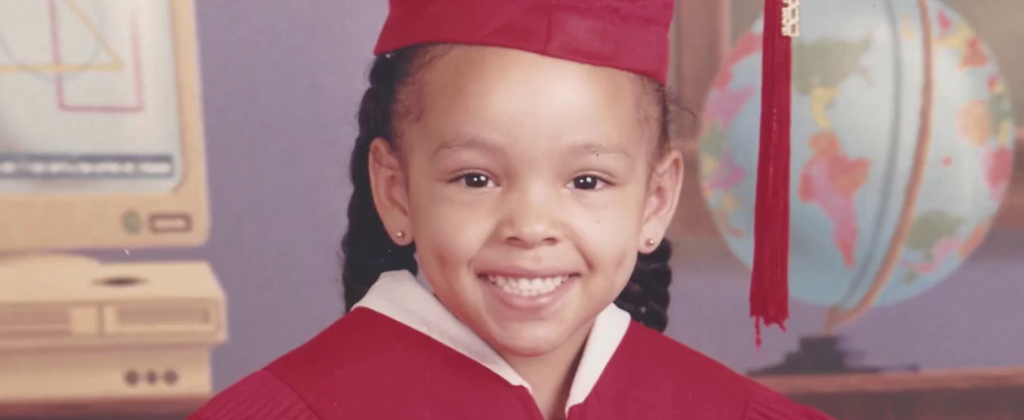
HJ: How do you change the narrative surrounding choice, to convey that a child does not have a “choice” in being trafficked? How do we move away from this culture of victim blaming?
People need to understand that children cannot consent, cannot make the choice, [to engage in a sexual act]. This “choice” is made as a result of someone older manipulating them. [And it is not necessarily a choice for every adult, either.] For example, I’ve watched older people who have been trafficked since they were children, and so for them, it is very much a lifestyle.
Many of the children I advocate for have been trafficked by their families out of necessity. Some children might have waited until they got older and then went out on their own because they felt they needed to make some money for their family. This brings about questions concerning what the government is doing. How, as a country and as community members, are we providing for these individuals?
Think about your child at nine or ten years old at a career fair and what would get them excited. There are no booths there for prostitution. Kids do not want to sign up for prostitution, it is not a career path anyone plans to do with their life. It is never a choice. When I laid down for the first time on my back at eleven years old and exchanged sex for money, it was like a hard drive – Something that was installed in me to understand that there are men that are willing to pay for sex from me, a child. I am definitely way past that now. Even after [I survived being trafficked and got free] when I was fifteen, I then started working at the strip club. I knew that there were still men willing to buy sex, because I had been abused.
During this time, my brain was automatically thinking that this was a skill in some way. It was the only thing I knew how to do. I have numerous survivor friends with only a fifth-grade education. We routinely feel, “I’m not secure about filling out the application.” “I’m not secure about walking into a job interview.” And this is all that they know. So we must start providing our communities and children with better options and choices.
HJ: What alternatives do you typically recommend to vulnerable individuals?
At eighteen, waitressing is the number one job I used to recommend to my girls who were just released from foster care. For some it worked, and for some it did not. Some got fired because they would curse customers out, but that is part of the process too. You learn as you go. Working as a waitress taught me about healthy communication. When I was a waitress and talking to people, I was learning about them. I was also making fast money, I had my own tips. I was regaining my power, knowing that someone would tip me for my good service and not for my body. I will never forget my first paycheck from Denny’s. I cried like a baby, because it was mine, and nobody could take that from me.
So, it is crucial to give these children options. I also recommend emphasizing the importance of education at a young age. Because sometimes a lot of these kids do not like school, but that is because they don’t feel they belong there. When I was eighteen and entered into community college, I realized I was not ready for it. Providing incentives to help children in foster care, or involved in any dependency system, to get through school is extremely beneficial. Providing them with more resources, opportunities, experiences, and connections with healthy people is what we should be doing as a community. We need to provide resources and options.
AS: What are the universal signs of sexual exploitation that anyone, even those who do not have or work with children, should look out for?
There are particular signs of abuse that anyone going about their day in their community can spot. I can give you an example. I was at the airport one day, watching this woman in line at security. She has a busted lip and her hoodie pulled all the way up, she did not even want to take it off to go through security. She went all the way through TSA without not one person stopping to ask this woman, “Are you ok?” Not one person. It turned out we were on the same plane so I grabbed her some tissues and was like, “Ma’m I don’t want to be rude or in your business but are you ok?” And she was like, “No, I am actually running from my boyfriend. I got in contact with a not-for-profit organization, so I am headed there now.” Alright, so ultimately, she was ok, but what if she was actively being trafficked?
When you see something, say something. Sometimes I go into restaurants and I see an older guy with a younger girl. I’m not always saying fifteen-years-old. But even an eighteen-year-old. I have a daughter, and I used to be young, so I can spot them out. I keep my eye on that. It is no different when I am out on the streets of LA or if I’m in Vegas. I know when there are kids out in those streets, because they take a different posture. You walk with a different demeanor when you are a child being trafficked.
I had a situation where I was coming out of my house and there was a young girl with a backpack on, had her hoodie up, and was clearly hiding. I hit the brakes, turned around, called out, “Hey, what are you doing? Who you running from?” She didn’t have a response. I was like, “Are you trying to run away? Take your butt back home.” Because she lived in my building and I had seen her before. She starts talking about, “I just want to go see my boyfriend.” But I’m like, “Ah, ah, ah. I am not moving this car. I will chase you. I will call the police. You are going to go in the house. Go back in the gate.”
A really prime example. I’m at my daughter’s swimming lesson. This woman came in with two black eyes, had her hoodie on, but was dressed really cute. She was watching her daughter swim but never really let her head up. So, I started talking to her. I could tell she was frightened; her demeanor was very timid. The teacher was a little bit aggressive with her daughter and she didn’t speak up for her kid. These were all signs of intimidation to me. So, instead of me asking, “Are you ok?” I just started talking about my life and telling her how I had been in domestic violence relationships and had been with unhealthy men. Then I started telling her that there are programs right here in our county that could help. She said, “Really, there are programs like that? Would they even help someone married get away?” I told her “Sure are. There are programs where you could walk out of here and get help right now, literally now.” And they left.
So it is all about when you see something, say something. I’ve been in line with girls or boys that are buying boxes and boxes of condoms at the store, and I will say something. You know, “Hey, I don’t want to be rude, but is everything ok?” Usually they just say, “Yeah, I’m fine,” or “Why are you asking me that?” And sometimes I do catch an attitude, but I don’t take it personally, I just go about my day. I would much rather that than not saying something.
I’ve seen boys in particular being outside selling candy or something seemingly innocent like that. But then you notice they’re with an older guy. So I’ll stop and talk to them and be like, “Hey, you know you do not have to be doing this, right? Why are you not in school right now?” You know, people will pass by these kids and not say a thing, maybe give them some money, but not want to talk to them. The kid might respond, “Ma’m, I’m just really poor.” So I ask, “Is this man with you taking any of your money? Because that is labor trafficking. I want you to know that.” And they’ll admit, “Well, yeah, they do take a percentage.” I’m like, “That is not okay sweetheart.”
Sometimes I’ll even give them my number. Like, “You need some new shoes?” Because they have busted shoes on or even no shoes on. You can tell they haven’t showered in days. I’m like, “Just call me. You want something? I will get you some clothes and stuff. Have your mama contact me, just tell your family you met a nice lady outside the store.” I don’t pass people up, because you never know. I talk to people. That is the best advice I can give, truly. When you see something, say something.
Now, I am not saying you should be on a local track where you know girls are prostituted and be trying to save somebody. No, do not do that. But sometimes they are hidden in plain sight. You could be at a hotel, even a nice resort, and see a girl go up to a room with a guy. And you realize multiple guys are coming in and out of her room. Report it to the front desk. Say something. There is always an opportunity.
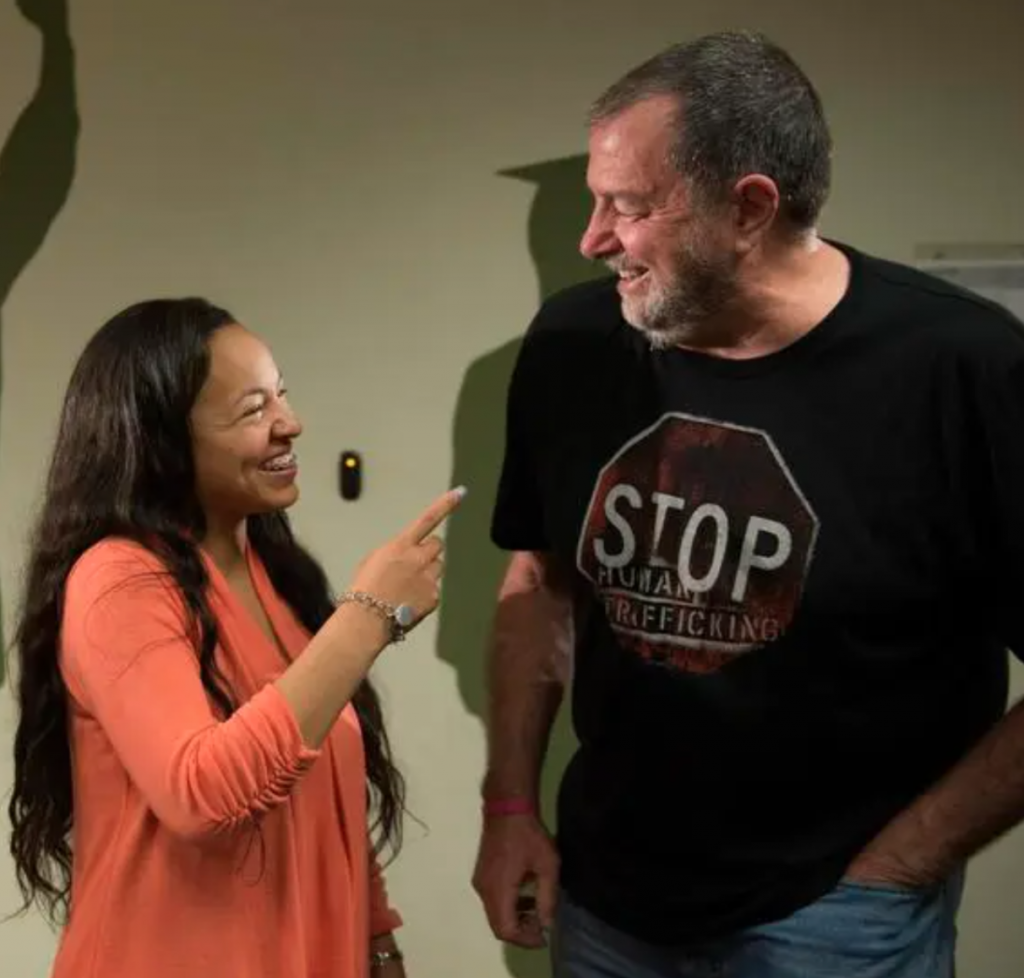
AS: Musician R. Kelly’s trial put the issue of child exploitation and human trafficking in the spotlight. What impact did this attention have on the cause?
There are always two sides to the fence. With R. Kelly and also with Jeffrey Epstein and similar cases. There is the media and the greater community who are like, “Man, these people were horrible. They did this to these women? They’re criminals.” And it is very sad to say but from my end, I see the victim’s very own people saying, “Those girls should’ve known better.” Asking, “Well if it was so bad, then why did those women stay?” “Why did she keep letting him do that?” And that is the sad part. I was following both sides when R. Kelly happened and it was breaking my heart to see so many comments along the lines of, “Well, if my child wanted to do it, might as well. She’s always acting like she’s grown anyways, she’d probably be out doing it with someone anyways. At least these girls got paid.” Like… What?
It is breaking my heart just as much as what I am not seeing and not hearing. We know, despite all the talk, that people are not taking these crimes seriously, because they still listen to the music. R. Kelly’s music is still very popular. That is [essentially validating his actions.] One of the problems is that as a society we only want to identify a [certain archetype] as victims. We want to call who we want to call victims instead of actually acknowledging the people who typically get exploited. For example, we want to say, “Oh, she is a victim because he used force on her. She is a victim because she was trying to escape.” What people do not realize is that you could be unable to escape the person victimizing you long enough to start thinking, “This person is the only one who loves me.” It’s like Stockholm Syndrome, you know, like [Patty Hearst] in the bank robbery.
I remember one of my traffickers sent me back home at one point. He literally sent me back home for the holiday season. Do you know what happened? I got the very reaction he said I would get. He told me before I left, “Your family don’t give a damn about you. You think they gonna ask what’s that tattoo on your neck?” [The trafficker had branded me.] “You think they gonna ask where you been and say welcome home? No. They gonna call you fast. They gonna think you ran away.” And that is exactly what happened.
So when I see reactions like the one R. Kelly is getting in many communities, or even Jeffrey Epstein’s accomplice — I cannot be bothered to pronounce her name — Maxwell. The time she got! Barely any. There are people serving 120 years for marijuana trafficking offenses. This person trafficked young girls. But I do feel bad for R. Kelly in a way. Because he was exposed early on, and nobody intervened, even though he clearly had a problem. I was angry not only at R. Kelly, but at the teachers who knew he was coming up to a school to get young girls and not reporting him. Again, it is a failure, not of any one individual, but of a community. And it is still happening every day.
AS: In what ways are these communal failures happening that the average person might not realize, and what action can be taken to repair them?
I have sat in courtrooms where a mother knew her child was being sexually exploited and chose to accept money from her child’s pimp. She allowed the exploitation to continue just because this man was paying them off. What happened in the community that it got to the point that the kid’s pimp was the man taking care of that household?
I cannot speak on anyone else’s situation. I don’t know R. Kelly. I did not know that mother in court. I do not know anyone else’s parents. But I have a daughter. And if I find out my child is in a house with somebody, I’m busting in, and I’m going to prison. Period, point blank. I will find who brought my child to that house, that hotel room, whatever. And when I find them, when I am finished, I would be in prison. No question. But it is such a thin line. The media only captures the satisfying side where everyone is outraged and then justice is served. They are not covering the side where our own people, Black people, are laughing about the crimes or thinking what these women are recounting in the Surviving R. Kelly documentary is funny.
We also need to change the narrative because the survivors in Surviving R. Kelly were adults at the time of the film’s recording but most were not at the time of being victimized. So, people are seeing them in the film as adult women, not the young kid who was victimized. That communal reaction was definitely something that shook me and just had me deeply discouraged at one point. Because I had a lot of friends, even women who I used to be very involved with in the streets, start reaching out about how they used to be exploited by older guys. How they were fourteen and would go to have sex with a man in his thirties. And did not realize until now that they were being exploited and that it is the same thing. It is the same thing. It is just a different title. So, we need to redefine exploitation within our communities. Any time there is an exchange of something for sex, that is a form of exploitation.
HJ: Do you feel that R. Kelly has been held adequately accountable for his crimes?
This conversation reminds me of Jeffery Epstein’s case. That man had a full list of individuals who were on the island with those underage and trafficked girls. For a fact, individuals in high power take advantage of young children. I have a survivor who speaks openly about the celebrities, specifically high end celebrities, that trafficked her. One issue is that there are a lot of organizations and activists that want to fight against human trafficking, but are simultaneously painting this narrative of Black men as pimps in the media. But, it is not just Black men trafficking women and kids, this is a multiracial, multi-generational thing that is highly dependent on location. If you’re in Los Angeles, you’re much more likely to find pimps that identify as Hispanic or African American. That said, in Ventura County, you’re much more likely to find a white male trafficker. Often, the identity of pimps is location based.
I also think that people want to stick to this narrative that the victims of human trafficking are predominantly foreigners, when in reality, most of these children are from America. Both the Jeffrey Epstein and R. Kelly cases were highly followed. But, so many other influential individuals, [including but not limited to celebrities], are engaging in human trafficking as well. It is all location and environment based.
Another issue is the way in which the media fails to highlight the numerous Black and Brown kids who fall victim to sexual trafficking. I’ve been in rooms where I have had to tell people, “Do not put that Caucasian girl on that poster because you want to captivate the audience.” It is parallel to the way in which they stereotype traffickers. As much as the media is over-representing Black men as perpetrators and traffickers, they are under-representing Black and brown children as victims.
So when people are looking, they are not looking for the Black girl on the track that they see in a McDonald’s with hardly any clothes on. They are not looking at Janeisha that has an attitude and will tell you, “F off,” and “I don’t want to talk to you.” They are looking for a little Susie that is looking a certain specific way, who seems helpless. But, that is not the reality of this issue. And although demographics look different in every state and town, it is primarily our Black and Brown kids who are the most impacted and the least protected.
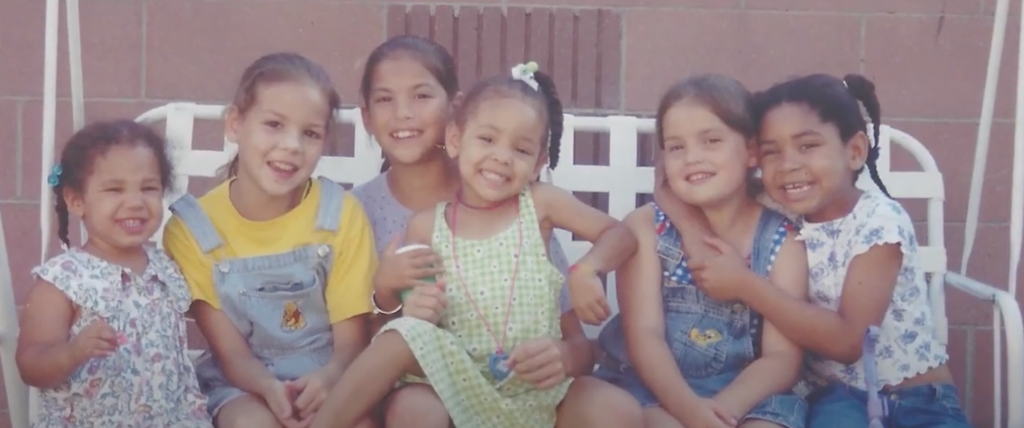
AS: You speak often about forgiveness, of others and of oneself. You have said people deserve to forgive no matter how trivial or extreme their circumstances. How did you choose forgiveness over vengeance after all you have survived?
I did not forget anything. It is still there. There are still memories I am trying to process. But forgiveness is not for the other person, it is for you. Forgiveness is so you can move forward with your life. Forgiveness really helped me to not stay in the victim mentality. Because I remember my transition from being “Oree Freeman, Victim of Sex Trafficking,” to then becoming, “Oree, The Survivor.” I could not become Oree The Survivor until I started letting go and forgiving people to really move forward with my life. If you are constantly asking, “Why me, why did this happen?” You cannot move forward. You’ll stay in that mental space. And I didn’t want that. I did not want to be a victim anymore.
For the people who will read this, it really comes down to honesty. Forgiveness truly is for you, not the other person. This stuff will eat at you. So let that stuff go. That stuff you’re holding onto will stop you from being a healthy parent, it will stop you from being a healthy spouse. It will stop you, period. That anger that you got for your daddy that you might have watched beat your mother, or your mother who you watched cheat on your daddy, whatever it is, you hanging onto all that is going to make you resentful. It will influence who you are in your important relationships. Hurt people hurt people.
AS: What advice do you have for those who struggle to forgive themselves?
I came into a space where I realized I had hurt people. What helped me realize that was recognizing that I have done some really bad things to people because people did bad things to me. People abused me, people molested me, so I have done some horrible things out of a desire to regain that lost power, a desire to be in control, sometimes even out of narcissism. I have hurt people with my words, I have hurt people with my actions, and I did these things to intentionally hurt people because of my own pain. The minute I started forgiving and letting go, I could start having healthy relationships. Healthy love. I could live life in an entirely different way, honestly.
Now someone can get really mad at me, and I’m like, “She’s just struggling. He’s just struggling.” Somebody could not show up for me, like one of my best friends was unable to attend my graduation where I was the keynote speaker. At first, I was mad, you know, “She wasn’t there for me.” Then I realized, “She’s struggling herself right now,” and I couldn’t really get upset. How can you show up for me when you’re still struggling to show up for yourself? So, I have learned that forgiveness is vital [not only for volatile relationships] but just as much for people you love and care about. It has definitely been a journey though. I have processed a lot of it with a therapist.
It is hard work, but it is worth it, because the alternative is to stay trapped. Mentally, but sometimes even physically. I sometimes think what kept me in trafficking so long was the idea that, “Well my family doesn’t want me, so I’ll just be here.” That was hurt keeping me in bondage, beyond the trafficking, because I was so angry with my family. Once I started working with a therapist to let that stuff go, my heart started to heal.
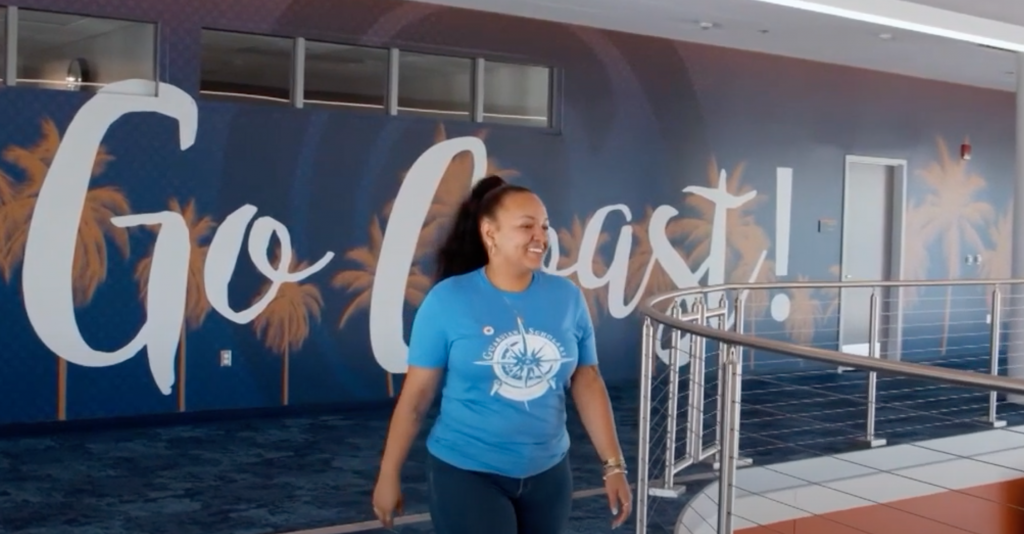
HJ: Amidst all that we just spoke about, what gives you hope?
In addition to my faith in God, I have always got to have hope because I am not the only survivor who is thriving. There are other survivors that are now raising healthy children. And my daughter Evelyn gives me hope in that while Evelyn is never going to experience something like what I experienced, she is going to be aware and cautious. We definitely need better leaders right now in this generation that are mindful of their words and what they are advocating for or protesting against. Children can change the world, but that is not going to happen without adults educating and preparing them. We need to teach the next generation to be better than the last. So, I think that’s my hope, it is in the kids, That’s where it started. And as long as I’m still breathing, I still have a fight in me. I am always going to be a bull in a China shop.
AS: In keeping with that, we heard you were the commencement speaker at your recent graduation. Congratulations! What’s next?
I just got my [associate’s degree] transferred because I am getting ready to start a bachelor’s degree in philanthropy at The University of Texas at Arlington. My ultimate goal is to open up a free school with mental health services, talk therapy, equine therapy, art therapy, that teaches kids all kinds of different things schools are neglecting: art, science, technology. I’m not going to be a teacher myself, so I want to be a philanthropist, coordinating the funding. I want to give back to these kids and in order to do that, we have to get these kids out from their communities.
My dream is that any child who completes the program will receive a full scholarship to attend college. This degree is definitely going to help me learn how to fundraise, grant write, all those different things I need to prepare for. I started as a communications major but when this opportunity presented itself, it was the perfect fit. I want to learn to raise and manage money strategically. My commencement speech was actually all about, “It’s not how you start, it’s how you finish.”
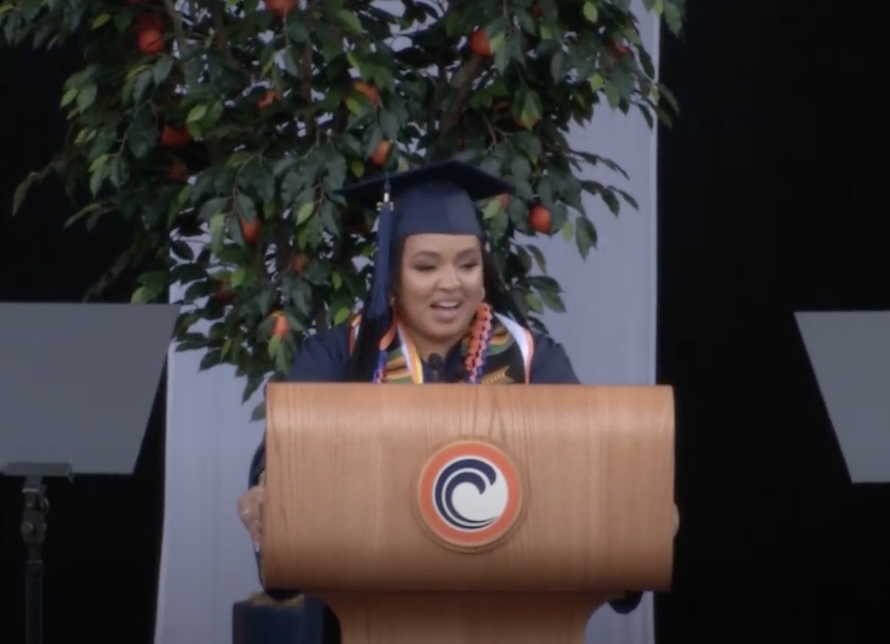
HJ/AS: Thank you for taking time out of your busy schedule to share all of this moving and urgent information with Brown Interviews. There is a lot here. What is the most important thing you want readers to take with them?
That these kids and these women and men that end up trafficked, they are even more than survivors. They are going to become mothers and fathers and husbands and wives. They are somebody’s brother, they are somebody’s sister, somebody’s daughter or son. It is just all about raising healthy families. To do that, we need to put the emphasis on protecting our men more, protecting our Black men and boys, because they do not get a lot of resources and they are slipping through the cracks. I am seeing it. I am seeing a lot of oppression followed by a lot of suicide. So I hope we pay more attention to resources for our young boys. And mental health overall. Definitely improving mental health and understanding that it is key in our society. But, ultimately, just remember that these people are more than survivors. They are drivers of their own destinies and they are going to live awesome lives.
*This interview has been edited for length and clarity.

